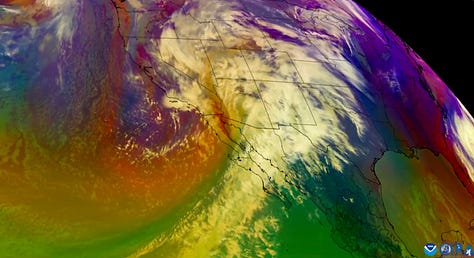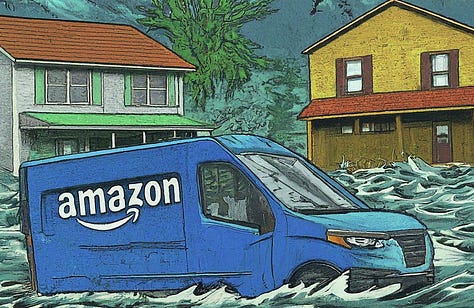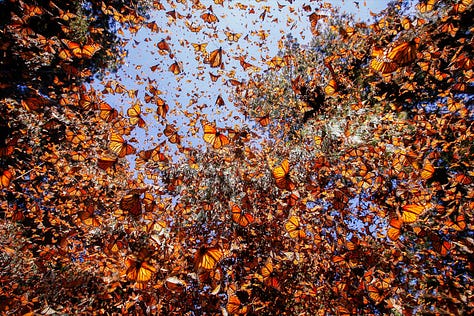Green Lights Feb. 9: Top stories this week
Don't miss a single story of the best from Callaway Climate Insights.






. . . . Welcome back to Green Lights. Here’s our weekly roundup of the best of Callaway Climate Insights. This week, David Callaway looks at how a deal between a world-leading bank and one of the largest tech companies can benefit the thousands of climate startups out there. Mark Hulbert looks for the elusive greenium. Also, finally, we can give AI something really helpful to do: Sort the stupid recycling. Here are the highlights in a simple and convenient format that makes it easy for our readers. It’s also easy to subscribe.
. . . . Against the market backdrop of plunging ESG stocks and concern about a U.S. retreat on climate under a possible second Trump administration, HSBC said it would team with Google Cloud to provide debt finance to the tech giant’s choices to join its sustainability validation program. David Callaway writes that this could signal a new outlook for sustainable debt financing as rates begin to fall. And, it pairs a world-leading bank with one of the largest tech companies to choose among the thousands of climate startups out there.
. . . . Are things going off the rails with these giant EVs?, Matthew Diebel asks in his insights column. Well, they are at least going through our highway guardrails. EV behemoths (like the Hummer, above, 9,000 lbs.) are so heavy, safety guardrails are no match for them. The solution? That’s right. Tougher guardrails.
. . . . Among sustainability investors, the mystery of why green bonds have lost their “greeniums,” or premiums to regular corporate brown bonds when they are issued, has been hotly debated. Mark Hulbert finds in a new academic study that issuers might actually be diluting their premiums to make both bonds look similar, in the face of lack of demand for bonds with less return. . . .
. . . . While the nation’s mail carriers should be appreciated for their dedication (Neither snow, nor rain, nor heat… etc.), it’s those Amazon delivery drivers we seem to see out everywhere amid the storms, atmospheric rivers and gloom of night. All the time. So, David Callaway says, it’s not surprising that the retail giant included a section on climate risk in its 2023 annual filing, warning that extreme weather could lead to higher costs and even changing demand patterns. What does that mean for investors and customers?

. . . . Hotter, drier conditions in the U.S. and Canada are hurting monarch butterflies by reducing the plants they eat. That reduces their habitat as well as their food supply. An important recent census in Mexico, where they overwinter, shows the number of butterflies has dropped 59% from last year and they have been found in only about 2.2 acres of forest in central Mexico.
. . . . Can AI sort out our huge recycling problem? Most of what you carefully put in your recycling bin is … wrong. Why? Partly because it is too confusing and time-consuming (and therefore expensive) to sort properly. But there may be a solution in sight: AI.
More greenery . . . .
The survey says: Most Americans are concerned about climate change but they really love the Super Bowl (ABC News)
Fighting back: Famed climate scientist wins million-dollar verdict against right-wing bloggers (Washington Post)
The problem with carbon offsets: They’re usually based on trees, and trees burn down. (Slate)
Don’t mention it: Florida could remove the majority of mentions of climate change from state law (Tampa Bay Times)
What’s in your wallet?: Crypto mining companies now must report their energy usage to the government (Inside Climate News)






